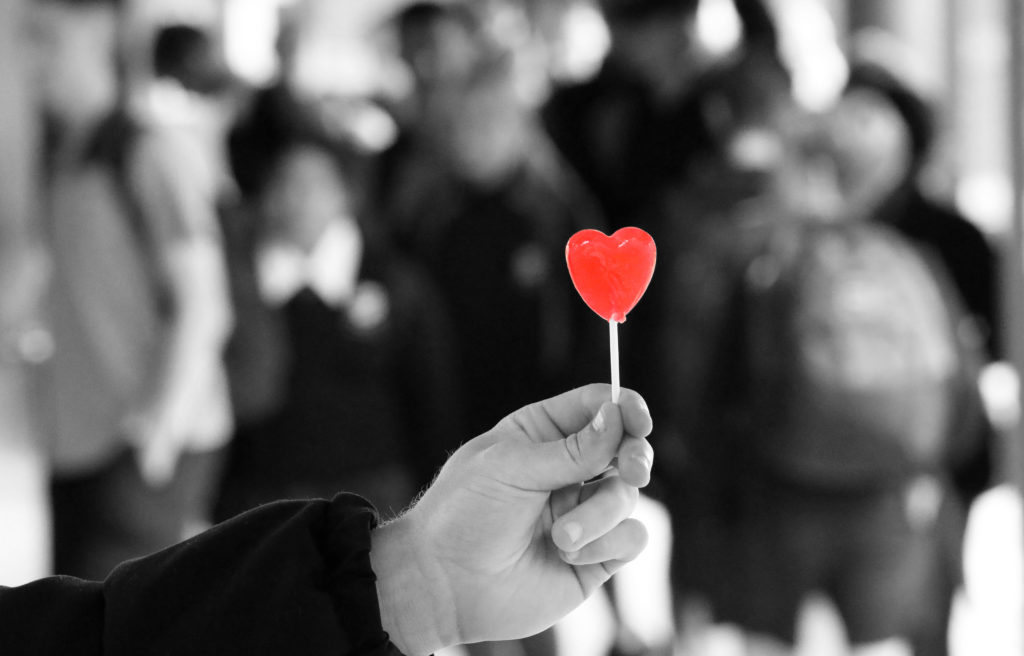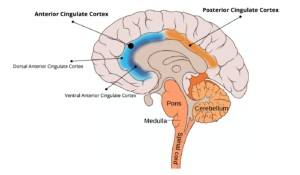Quick Hits
Daily brief research updates from the cognitive sciences

Love and kindness
We all know that some people are more altruistic than others. Most of us will also admire acts of selfless behaviour. The hero who saves a person, the people who serve others tirelessly on various volunteer projects, and those kind people who always seem to have time to help another soul.
So, if we know some people are more altruistic, it would follow that we should be able to see this in a brain. Some regions have been identified as helping with various social skills such as the medial frontal cortex (I review psychopaths in this article and their brains – the opposite of altruists).
However, a group of researchers at Birmingham University have now been able to identify another region of the brain that seems to be specifically involved when making conscious, and effortful, decisions to help others. This activates differently to decisions to help oneself.
What did these researchers discover?
Patricia Lockwood et al. worked with 38 people between 18 and 35. They took part in effortful decision-making tasks, self-assessed their empathy, and went through a series of decisions while having their brains scanned. In this particular experiment the particularly clever bit was that the candidates had to work. This is a problem of brain scanning. It can’t be done in the real world or when walking around – only lying in a scanner. This means that decisions can be made but that may not reflect the amount of effort a person will invest into a task.
In this experiment participants had to squeeze a device that measured grip strength – they had to squeeze hard enough and long enough to reach a threshold to get a reward. The researchers could therefore see how much effort a person was willing to exert to get various rewards. But in this case, they could also see and accurately measure differences for work to get a reward for oneself or work done to get a reward for another person. Ingenious.
 And in doing this they managed to identify a region called the anterior cingulate cortex gyrus (ACCg) that was associated with the effortful decision.
And in doing this they managed to identify a region called the anterior cingulate cortex gyrus (ACCg) that was associated with the effortful decision.
- Firstly, it did not activate when making an effortful decision for themselves.
- Secondly those who said they were more altruistic also had the strongest effort patterns in the ACCg.
- Thirdly stronger grip activation was associated with stronger activation of the ACCg suggesting that this region directly correlates with effortful decision to help others.
As usual for this kind of study a lot more work has to be done with different individuals and also, for example, with those who have antiscoail perosnality disorder or psychopaths.
Nevertheless, a fascinating piece of research, particularly when we consider that the Anterior Cingulate Cortex (for review see here) has multiple associations with decision-making, error detection, but also with behaviour change. So, it looks promising.
Can we train the ACCg? Unlikely, but having this knowledge is still likely to be useful.
And I certainly feel my ACCg seems to be in good shape!

Andy Habermacher
Andy is author of leading brains Review, Neuroleadership, and multiple other books. He has been intensively involved in writing and research into neuroleadership and is considered one of Europe’s leading experts. He is also a well-known public speaker, speaking on the brain and human behaviour.
Andy is also a masters athlete (middle distance running) and competes regularly at international competitions (and holds a few national records in his age category).
Reference
Patricia L. Lockwood, Marco K. Wittmann, Hamed Nili, Mona Matsumoto-Ryan, Ayat Abdurahman, Jo Cutler, Masud Husain, Matthew A.J. Apps.
Distinct neural representations for prosocial and self-benefiting effort.
Current Biology, 2022
DOI: 10.1016/j.cub.2022.08.010
More Quick Hits
When Cognitive Games Do Make You Smarter
Quick HitsDaily brief research updates from the cognitive sciences ognitive games have been around for many years now – the first wave of popularity came with Nintendo’s “brain jogging” almost two decades ago now. These games have claimed that they...
How Walking Makes Some People “Super Taskers”
Quick HitsDaily brief research updates from the cognitive sciences hose of you who have followed my writing will know that I have reported regularly on the amazing benefits of exercise and walking on the brain, body, and cognition. However, though...
Older People are Better at Responding to Distress
Quick HitsDaily brief research updates from the cognitive sciences e may have some cliched ideas of older people like the grumpy or angry old man, or woman (but it is often a man). However, research continually shows the opposite. Namely that...
Guided Play Highly Effective for Learning in Children
Quick HitsDaily brief research updates from the cognitive sciences ood news for some and bad news for traditionalists in education. Some believe that starting education early and using classical and traditional learning activities is the best way...
Childhood Fitness Improves Mid-Life Cognition
Quick HitsDaily brief research updates from the cognitive sciences always find these long-term studies fascinating. Imagine launching study and not knowing what the outcomes will be for another 30 years! This is precisely what this study did. It...
The Truth of “Work Hard, Play Hard”
Quick HitsDaily brief research updates from the cognitive sciences e all know the phrase “work hard, play hard” and this drew my attention when I stumbled across some research actually looking into this - and whether this is a good thing or bad...






